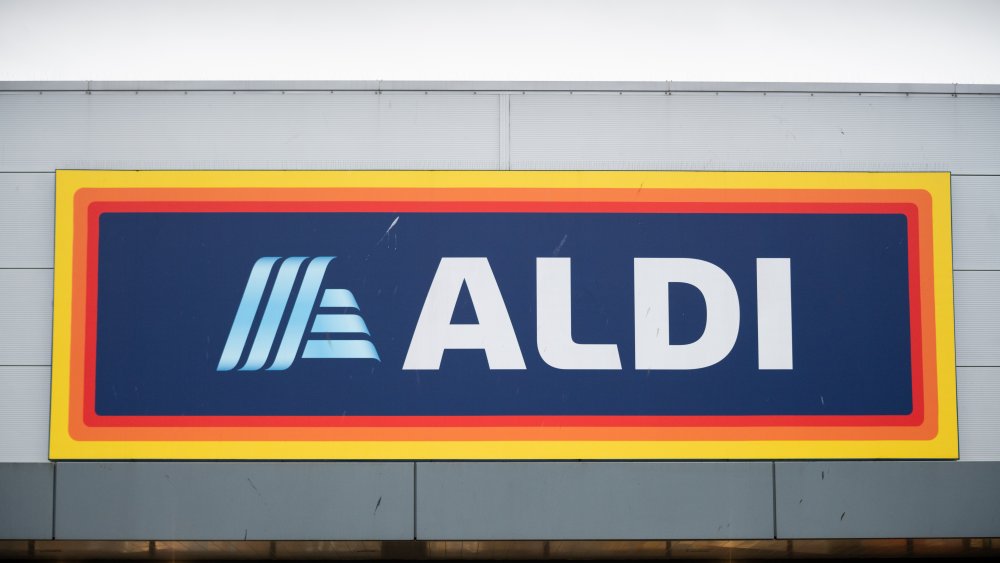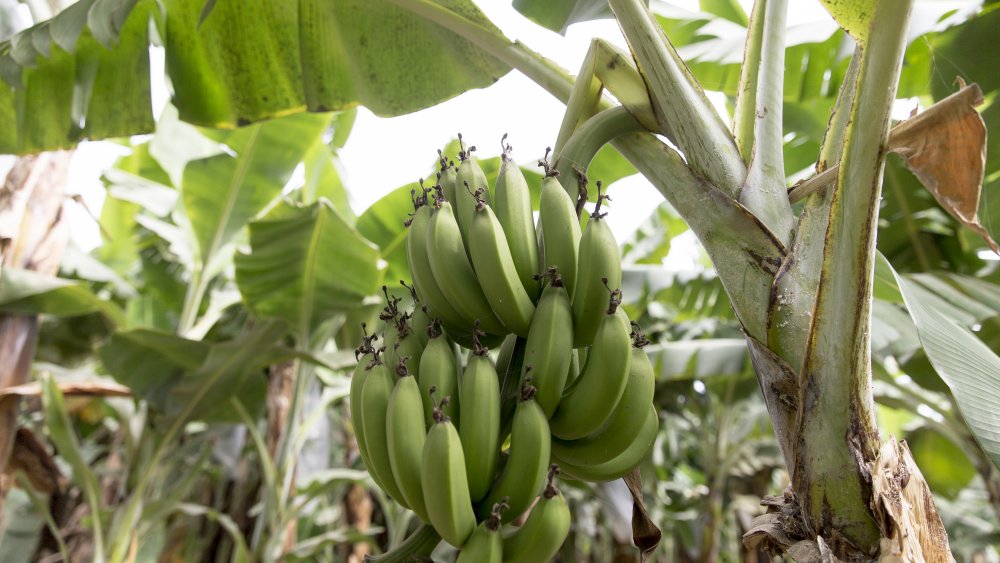The Reason Banana Farmers Are Furious With Aldi
If you're like us, you are always looking for a good deal – but that doesn't mean you expect people to work for free. Products require money and labor to produce, no matter what we pay as consumers. When grocery shopping, we assume sale prices are set by the stores as a promotion, not by the farmers and laborers often already earning wages below the poverty line. Bucking this trend is why Aldi has people angry. Aldi has recently stirred widespread controversy in the fruit supplies division by slashing the prices it usually pays growers, and the industry is going bananas (literally).
The German-based company is reportedly planning to cut it's 2021 compensation for our favorite yellow fruit by €0.06 (about 7.1 cents) per kilogram, reducing the box price to €11.33 ($13.45), according to FruitNet. While that might not sound like much, consider that for every million kilograms sold, a producer would be losing €60,000 (about $71,000) compared to the previous price. Now consider that in 2017 alone, a total of 20.5 million metric tons of bananas were exported worldwide (via Fresh Plaza). These amounts are clearly nothing to monkey around about.
Sustainable farming requires an investment
Yet if it were only profit margins, this low-ball offer might not raise so much ire. Instead, producers from Ecuador, Colombia, Guatemala, Honduras, Panama, and Costa Rica are accusing the grocer of double standards. Releasing a joint statement they note, "Aldi's public discourse embraces sustainability and yet there is a great discrepancy between its image towards consumers and its actions with producers." The growers allege that Aldi's price slashing jeopardizes their ability to farm sustainably and pay fair trade labor while doing so.
Aldi's published Corporate Responsibility Principles include a commitment to the full food life cycle. "We strive to take into consideration the product's lifecycle with the aim of continually reducing resource intensity and ecological impact whilst improving compliance with social standards," writes the grocer. So this pricing demand does seem out of character.
Exactly how this situation has gone so bananas, it's kind of tough to say. But it doesn't seem like the result of financial troubles. Like many grocery stores in the U.S., Aldi has also done well as more people dine and entertain at home. The grocery giant shared in September of 2020 that it posted a 49 percent increase in profit for 2019 and announced plans to open hundreds of stores and provide thousands of new jobs (via Yahoo! Finance). With numbers like these, we can see why banana farmers are furious.

